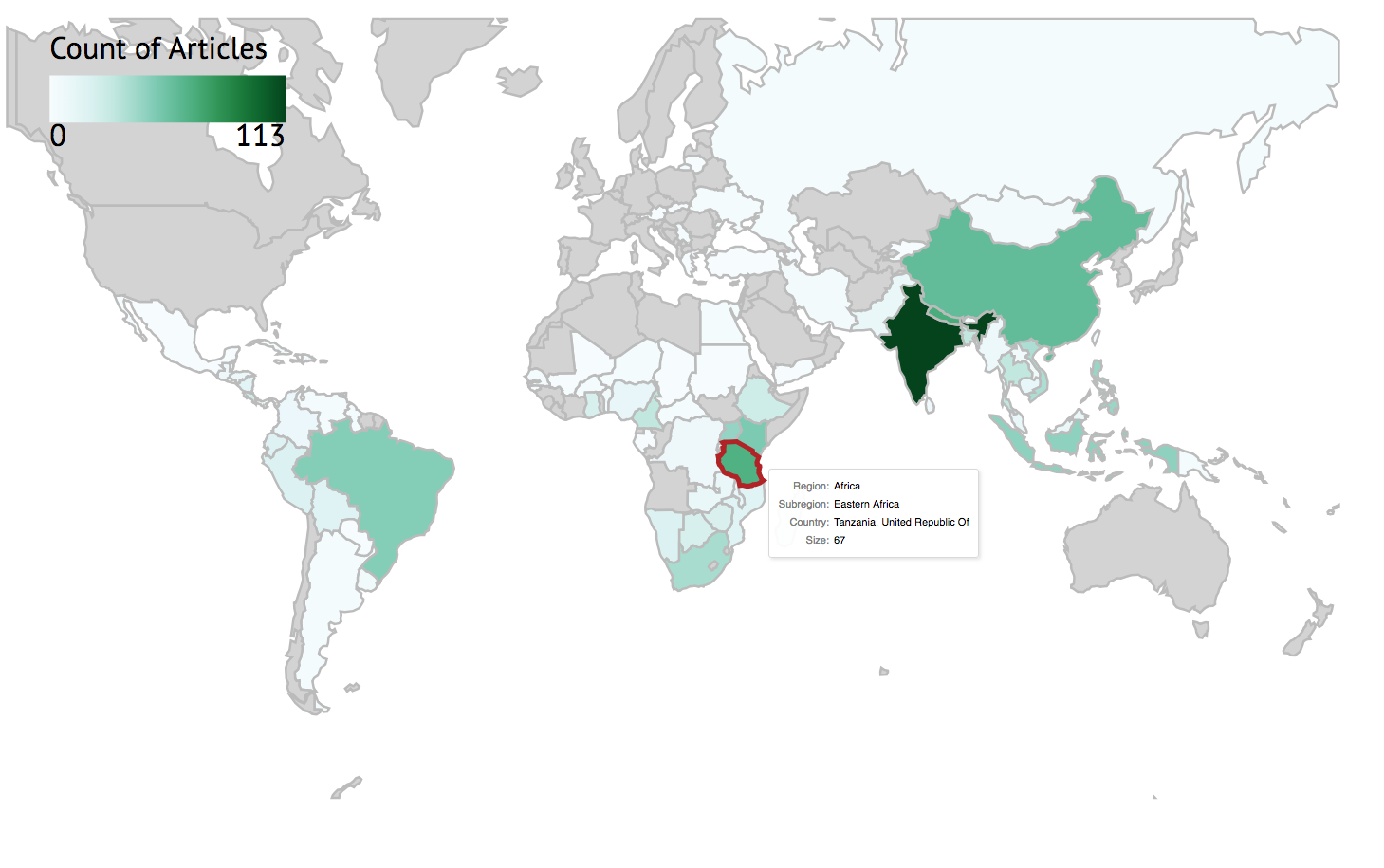Teams Like This
Governments and organizations increasingly pursue conservation policies to achieve positive outcomes for both human well-being and natural ecosystems. To achieve this, it is critical that practitioners understand linkages between nature and people: which interventions have been effective at meeting social and environmental objectives? What evidence is available to support decisions? Unfortunately, evidence of these linkages is often either unclear or inadequate.
OUR APPROACH: This team brought together expertise from data synthesis, machine learning, computer science, international development, and social science to assess the current state of evidence and to enhance our understanding of how conservation affects human well-being.

Mapping the Evidence
Following their Nature publication “Map the evidence,” the team developed the Evidence for Nature and People Data Portal. This portal features data and an evidence map, which highlights the number of unique articles that document the impact of a specific conservation intervention on a particular human well-being outcome. The portal allows users to filter, explore, and visualize data to identify information relevant to decision-making.
Colandr
In collaboration with Conservation International and DataKind, the team created Colandr, an open-access machine learning application that accelerates scientific data filtering. Before the development of Colandr, it could take months to years to sift through studies and track down the evidence needed to make the right decision. This tool allows conservation practitioners and policymakers to quickly mine research for key insights and make more timely science-based decisions.

“Conservation strategies have a greater impact when they are informed by the latest scientific evidence, so we need to make this evidence easily accessible to decision-makers at all levels.”
– Yuta Masuda, Team Member
The team’s paper published in Environmental Evidence used existing knowledge to address the gap between community and incentive-based interventions and the effect that social equity has on human well-being outcomes.
This report from the International Initiative for Impact Evaluation (3ie) presents findings from the team’s evidence gap map that assesses the evidence available on the effects of land-use change and forestry programs on greenhouse gas emissions and human welfare outcomes.
In this paper published in Conservation Biology, the team describes how machine learning optimizes processes of systematic evidence synthesis and improves its utility for evidence‐based conservation.
By creating a list of criteria and evaluating over 1,000 peer-reviewed and grey literature articles, the team found that ~20% used any sort of causal models to guide their research with only 14 total articles fulfilling all of their criteria for credibility.
Vulcan (formerly Conservation International)
Wildlife Conservation Society
University of Exeter
University of Bangor
University of Cambridge
DataKind and Kaplan
University of Illinois
Conservation International
International Institute of Environmental and Development (IIED)
Mercy Corps
University College London
World Wildlife Fund
University of Maryland
University of Exeter
Center for Biodiversity Outcomes, Arizona State University
The World Bank
National Oceanic and Atmospheric Administration (NOAA)
The Nature Conservancy